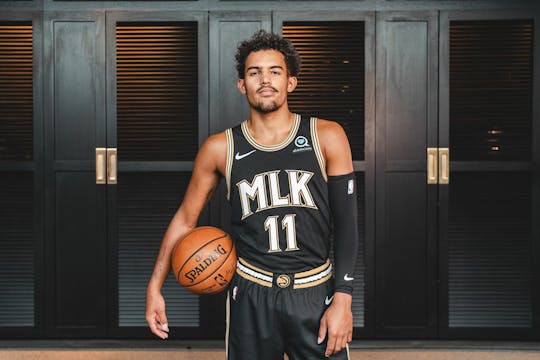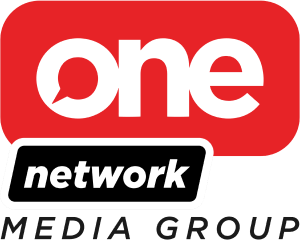MLK Day aims to continue and honor the work done by King, a prominent African American Civil Rights leader. His work focused on using nonviolent means to end the issue on racial segregation in the U.S. during the 1960s. He was a key player on the passage of the Civil Rights Act of 1964, which outlawed discrimination in public accommodations, facilities, and employment, and the Voting Rights Act of 1965. For his role, he was awarded the Nobel Prize for Peace in 1964.
King, however, was brutally assassinated four years later on April 4, 1968.
Moving forward to the present, MLK Day this year carries heightened relevance. Before the 2020 elections, several cases of police brutality shocked the nation starting with the death of George Floyd. Floyd’s death, which was caught on video, sparked several peaceful protests across the U.S. by the Black Lives Matter (BLM) movement, reaching different states in America. Reportedly, over 8,500 civil rights demonstrations were organized by the public, shedding some light on persistent issues of systemic racism.
The NBA, one of the pivotal organizations that actively participated in the protests, gave the BLM movement a far-reaching platform in 2020.
Besides giving players a platform to showcase their abilities on the court, the NBA has helped players pursue their advocacies through various social programs. One of their biggest announcements last year was the creation of a new NBA foundation aimed at empowering Black communities and promised to donate $300 million over the next decade.
All 30 NBA teams will donate $1 million annually focused primarily on education and youth employment within the Black community. They also promised to increase “access and support for high school, college-aged and career-ready Black men and women” by assisting different organizations that provide mentorship, training, and coaching in NBA markets both in the United States and in Canada
The league’s most prominent decision, however, was to push more pressing matters into the spotlight by integrating their advocacies within the games during the NBA restart.
Before the bubble in Orlando, many NBA players had joined the community in protesting against racism and police brutality. Therefore, once talks on a restart began, the NBA and the National Basketball Players Association (NBPA) agreed to resume the season with a commitment to use their platform to address social justice issues. In a visually impactful initiative suggested by the union’s president and then Oklahoma City Thunder guard, Chris Paul, the league allowed players to wear jerseys with a number of social justice messages until the end of the 2020 NBA Finals.
The decision brought a new wave of attention towards the BLM movement -- the kind of attention that was not brought by the news but by a platform that is loved and enjoyed by many regardless of their awareness on different social issues.
Three hundred out of the 350 players sported jerseys with different statements pertaining to social justice. Damian Lillard of the Portland Trail Blazers chose to amplify the phrase How Many More. Donovan Mitchell of the Utah Jazz dedicated the season to Breonna Taylor, an African American woman fatally shot by the police, by wearing Say Her Name. Giannis Antetokounmpo, two-time league MVP from Greece and son of Nigerian immigrants, put Equality on the back of his Milwaukee Bucks jersey.
International superstars also participated and even used their native languages: Enakopravnost (“Equality” in Slovenian) for Luka Doncic of the Dallas Mavericks, Si Se Puede (“Yes You Can” in Spanish) for then Brooklyn Nets center Jarrett Allen, and Sloboda (“Freedom” in Serbian) for Bogdan Bogdanovic, who at the time was still a member of the Sacramento Kings.
“I think we have all been inspired, not only that we see something that’s absolutely wrong and you don’t want to just talk about it, you want to actually be a part of the change,” Miami Heat head coach Erik Spoelstra said.
The participation of NBA players in this historic jersey movement was not only a reflection of the bond formed by teammates who care about one another, but also of how these pressing issues go beyond the borders of the United States. The issues of systemic racism, police brutality, and white supremacy is not one that ends in America, but rather a global issue that affects the whole world.
The NBA did not just stop at apparel. Throughout their stay in Orlando, the NBA teams, both players and coaches, continued to be vocal and talked about the different social justice issues through interviews with the press and their social media platforms. The Bucks and the Orlando Magic even decided not to play their playoff game following the shooting of Jacob Blake in Wisconsin on August 26 as a form of protest against the brutality.
“I hope people continue to use their platform, use their individual social media platforms, if they’re doing it that way or if you are an individual that goes into your community and does it that way,” said 2020 Finals MVP LeBron James.
The NBA also focused on the power of voting and pushed the NBA governors to use their respective arenas as polling sites for the historic November 3 presidential election.
“They needed to kind of step back, reevaluate and figure out how we could move forward, and try to create positive discussions, positive dialogue and comfortable dialogue, which hopefully can lead to change, especially from a voter suppression standpoint with the vote coming up and [it] being so important,” Trail Blazers guard CJ McCollum said.
What can Filipino NBA fans learn from the NBA global community’s fight against racial injustice? Empathy and awareness. Through efforts of the league and its players, fans in the Philippines can learn more about the struggle of African Americans. MLK Day also reminds Filipinos of a universal aim: we always need to uplift, support, and strengthen our communities. As the great Martin Luther King, Jr. said, “Injustice anywhere is a threat to justice everywhere. We are caught in an inescapable network of mutuality, tied in a single garment of destiny. Whatever affects one directly, affects all indirectly.”




